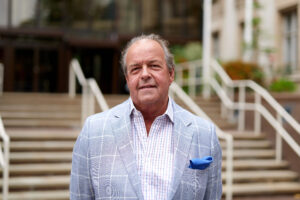 “Game changer” is one of those words that didn’t exist a generation ago. Now we hear it used frequently – very often to describe situations that are not game-changers at all. In my mind, a combination of developments now underway in Greater Essex do indeed combine to create a game-changing moment.
“Game changer” is one of those words that didn’t exist a generation ago. Now we hear it used frequently – very often to describe situations that are not game-changers at all. In my mind, a combination of developments now underway in Greater Essex do indeed combine to create a game-changing moment.
Last week, Essex took an important first step towards seizing that moment and shaping a health and care system in our county that is truly working as one, for the benefit of our residents.
At Anglia Ruskin University, I had the privilege of bringing together a diverse group of leaders from across local government, the health service and the voluntary sector at a special Health and Social Care Seminar. The aim was to consider the possibilities ahead, offering up a starter-for-ten as we begin to chart a course through an unprecedented period of change and opportunity in our system.
Next year sees the election of a Mayor for Greater Essex, with decision-making powers across economic, planning, transport and environmental areas, together with a clear public health duty. Across the same Greater Essex area, we will see a new, single Integrated Care Board, overseeing health care throughout the county. In the following years, Local Government Reorganisation will bring entirely new, unitary councils with responsibility for all local government activity in their area. These changes aren’t just redrawing boundaries on a map, they will touch the lives of every resident of Essex, especially in respect of health and social care.
Our Seminar on Wednesday was therefore a starter-for-ten, bring together leaders to consider the potential opportunities that all these changes present. The decisions we make now will determine how we support people to live healthier, happier lives for years to come.
The context was set by a presentation on the NHS’s recently launched 10 Year Health Plan for England, led by Tom Abell, CEO of the Mid and South Essex Integrated Care Board. The aim is to shift the focus and with it, the resources, towards community health services, GP surgeries, health centres etc – what we refer to as primary care. It is clear it will have a huge impact on Essex, as it will the whole of the country.
The plan’s focus on prevention aligns closely with our own local ambitions. As Sarah Muckle, our Director of Wellbeing, Public Health and Communities, shared, Essex is already leading the way in this space, helping people stay well, not just treating illness. The seminar was a chance to showcase some of the work already taking place, including an inspiring presentation from Lindsay Barret, CEO of Sport for Confidence, about the power of physical activity being such a catalyst for improvements in people’s lives.
We also explored the power of “Neighbourhoods”. This means building healthy, connected communities where support is close to home. It is not just a buzzword, it’s a vision for how we can make care more personal, responsive, and effective.
The NHS’s struggles are well documented and in addition, across both adults and children’s social care, we are facing rising demand. There are many causes, such as ageing and growing populations as well as more complex issues. Budgets are tight and the stakes are very high. But if there’s one thing this seminar proved, it’s that Essex is stronger when we work together, and there was a clear energy and optimism among those who attended.
It was an important first step and I would like to thank all of our partners for their commitment to work with us. The expertise of our speakers and the genuine engagement of the audience shone through.
The future of health and social care in Essex is being written right now and this won’t be the last time we meet as a united system. There is a lot to do but we will continue with this work focused on what matters most – our residents.
Leave a comment